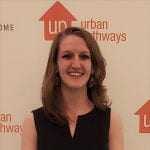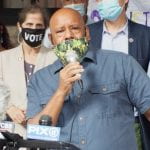
On February 10th, our group interviewed Judith Mack about her work with Open Hearts. Judith works at LREI as a learning specialist meaning that we did the interview in person and not on zoom. She talked about how she met Shams Dabaron who is also known as Da Homeless Hero and how she thought he was an outstanding person because of his view on homelessness.
Something that I remember specifically from the interview is when Judith said that the reason she got involved with fighting homelessness is because she believes in the phrase “treat people how you would like to be treated” also known as the golden rule. She noticed that homeless people were being treated as criminals and at that moment decided to make a change for good.
Our Group is glad that we met her especially in person. This interview made me realize that if everyone treats homeless people how they want to be treated then experiencing homelessness would not be looked down on. Even if everyone followed the golden rule the whole world would be a better place .








